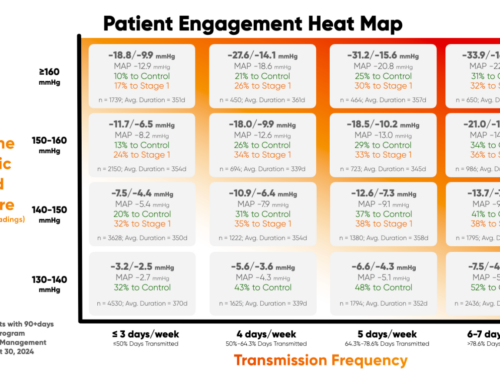As we all know, the 2023 Medicare physician fee schedule has been a long time in the making. And while it doesn’t include everything that some of us were hoping for, it does include some significant changes that will positively impact how healthcare is delivered in the future. In this blog post, we’ll take a closer look at some of the most important updates included in the 2023 Proposed Rule.
Changes and Improvements to Remote Therapeutic Monitoring Codes
One of the most significant changes in the 2023 Proposed Rule comes to the remote therapeutic monitoring (RTM) codes. As many of you know, last year CMS introduced five new CPT codes for RTM. However, there were some limitations placed on these codes that caused difficulties for both clinicians and patients.
The good news is that CMS has listened to the feedback and made some much-needed changes to the RTM codes. First, they’ve clarified that the codes can be used for both real-time and asynchronous monitoring. This will allow clinicians to choose the modality that best meets their patients’ needs. Second, they’ve eliminated the requirement for a face-to-face visit before initiating RTM services.
This will help to ensure that patients who can benefit from RTM are able to access these services in a timely manner. Finally, they’ve clarified that RTM services can be provided by clinicians other than the treating physician. This will allow clinics and remote monitoring partners to better utilize their staff and provide more comprehensive care for their patients.
This change also allows virtual care management vendors such as HealthSnap to take a more proactive approach to patient care in the Remote Therapeutic Monitoring space (coming soon), and lessen the burden placed on care teams in a clinical setting.
Reimbursement Opportunities for Behavioral Health and Chronic Pain Management
In addition to the changes to the RTM codes, the 2023 Proposed Rule also includes new reimbursement opportunities for behavioral health and chronic pain management. For behavioral health services, CMS is proposing a new CPT code for psychotherapy for crisis care. This will allow clinicians to be reimbursed for providing this important service to patients in need.
For chronic pain management, CMS is proposing a new HCPCS code for remote patient monitoring of pain intensity. This will allow clinicians to be reimbursed for using remote technologies to monitor and manage their patients’ pain.
No Changes In Sight For Remote Physiologic Monitoring
One thing that hasn’t changed in the 2023 Proposed Rule is the reimbursement for remote physiologic monitoring (RPM). CMS continues to reimburse for RPM under the existing CPT codes (namely CPT Code 99453, CPT Code 99454, CPT Code 99457, and CPT Code 99458), with no new codes or coverage changes proposed. This means that for now at least, clinicians who use RPM to manage their patients’ care will continue to be reimbursed at the same rate under the same compliance guidelines set in 2022.
The Takeaway
The 2023 Proposed Rule is just that – a proposal. CMS will now review all the comments they receive and make any necessary changes to the final rule. The final rule is expected to be released in November of this year. Stay tuned for more updates!
If your health system or physician group is interested in deploying a Virtual Care Management program, such as Remote Patient Monitoring or Chronic Care Management to deliver the best care to patients when and where they need it, schedule a personalized consultation today.






